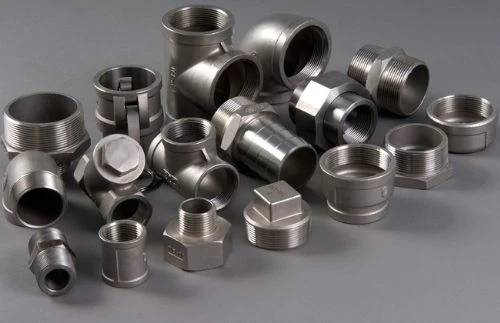Alloy Steel F1 forged fittings are a vital component in various industrial applications. To fully appreciate their significance, it is important to understand the composition, properties, and unique features of these fittings.
Alloy Steel F1 Forged Fittings is a low-alloy steel that is specifically designed to provide excellent strength & durability. It typically contains elements such as chromium, molybdenum, and vanadium, which contribute to its enhanced mechanical properties. The specific composition of alloy steel F1 can vary slightly depending on the manufacturer, but it is typically tailored to meet industry standards and specific project requirements.
The forging process is crucial in the production of alloy steel F1 forged fittings. During forging, the steel is shaped and formed under high pressure and temperature, resulting in a finished product with superior strength & structural integrity. This manufacturing technique ensures that the fittings are free from defects and have a uniform grain structure, making them highly reliable and resistant to mechanical stresses.
Types of Alloy Steel F1 Forged Fittings
Alloy steel F1 forged fittings are available in various types, including elbows, tees, couplings, unions, and more. Each type serves a specific purpose in piping systems and offers unique advantages. For example, elbows allow for changes in direction, while tees enable the branching of pipelines. These fittings are designed to provide leak-proof connections and facilitate efficient fluid flow.
Characteristics of Alloy Steel F1 Forged Fittings
One of the key characteristics of alloy steel F1 forged fittings is their high tensile strength. They can withstand heavy loads, pressures, and temperature variations, making them suitable for applications in high-pressure environments. Alloy steel F1 exhibits excellent resistance to corrosion and oxidation, ensuring longevity and reliability even in harsh operating conditions.
The versatility of alloy steel F1 forged fittings is another significant aspect. They find extensive use in industries such as oil and gas, power generation, chemical processing, and more.
Alloy steel F1 forged fittings play a crucial role in various industries, providing exceptional strength, durability, and versatility.


